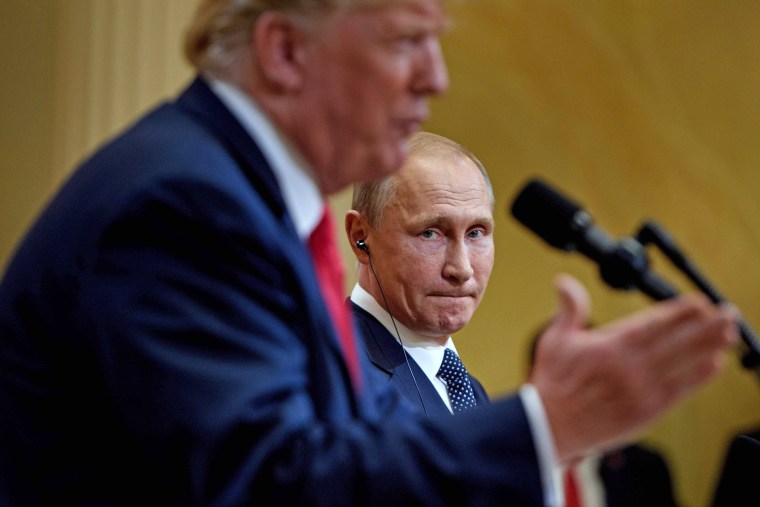In the final weeks of the Obama administration, U.S. intelligence community officials released a brutal assessment: Russia launched a covert intelligence operation in 2016 intended to undermine U.S. elections and propel Donald Trump to power.
The incoming Republican president, fearful that such revelations would detract from the legitimacy of his controversial election -- one in which he lost the popular vote -- denounced the findings of his own country's intelligence professionals. As Trump saw it, politically motivated officials exaggerated the Kremlin's efforts as part of a scheme to undermine him.
There's fresh evidence that Trump was wrong and the intelligence community was right.
A bipartisan investigation by the Senate Intelligence Committee has validated the January 2017 U.S. intelligence assessment describing Russia interference in the 2016 presidential election -- including Russian efforts to help Donald Trump -- describing it as accurate, thorough, and untainted by political bias.
The full 158-page Senate Intelligence Committee report is online here (pdf). It features plenty of redactions.
Before the White House condemns the findings, it's worth emphasizing that the Senate Intelligence Committee is a Republican-led panel, chaired by Sen. Richard Burr (R-N.C.), whom Trump has praised many times.
I can appreciate why today's report may seem predictable. After all, we knew that Russia attacked our elections, just as we knew Vladimir Putin's government targeted our political system in order to help put Trump in power. Confirmations of established facts are, practically by definition, old news.
But as regular readers know, the White House has spent an astonishing amount of time and energy challenging these established facts, hoping to prove that Russia didn't attack our elections.
This was, for example, a key part of Donald Trump's infamous July phone call with Ukrainian President Volodymyr Zelensky, during which the American president referenced a crackpot conspiracy theory intended to help exonerate Russia from its role in the 2016 scheme.
Secretary of State Mike Pompeo argued that his boss was on the right track, and Attorney General Bill Barr has hunted for something he could use to bolster his boss' conspiracy theory. (Indeed, Barr is still investigating the origins of the Russia investigation and has raised the prospect of prosecuting Americans.)
Either the White House is going to have come up with a new theory -- I wonder if Team Trump will suggest Republican senators are themselves part of a nefarious scheme -- or the findings of the Intelligence Committee will have to effectively serve as the final word on the matter.

